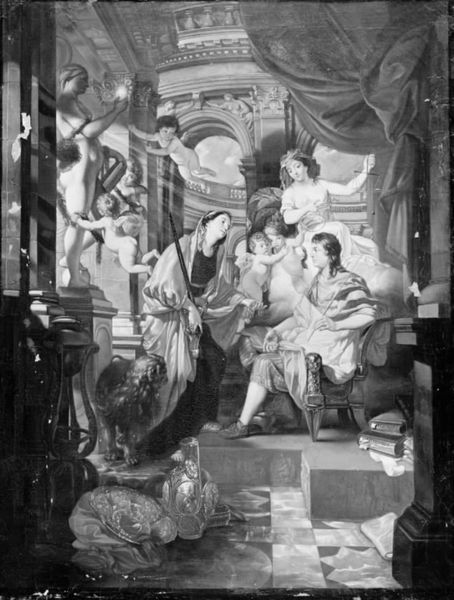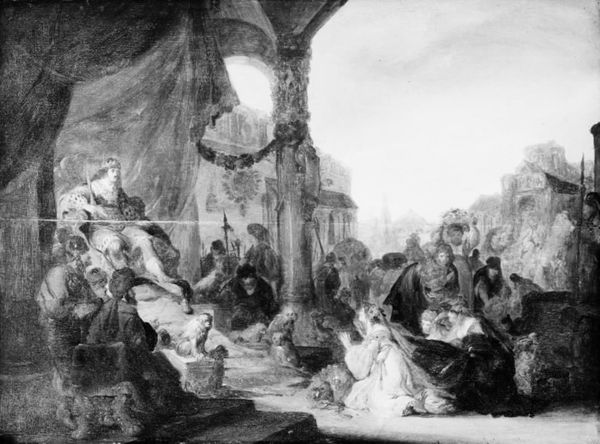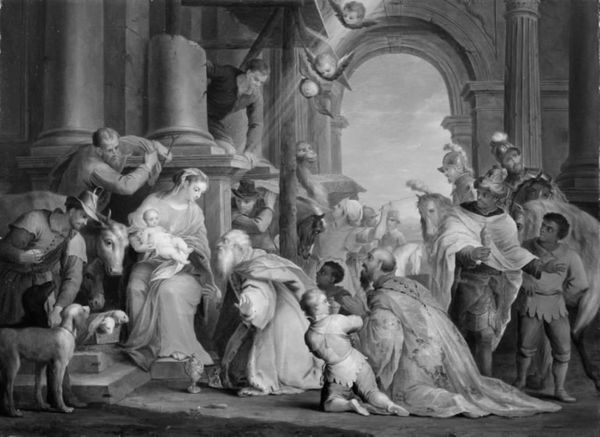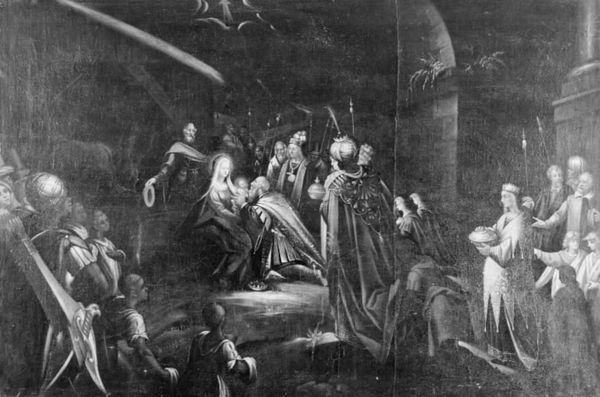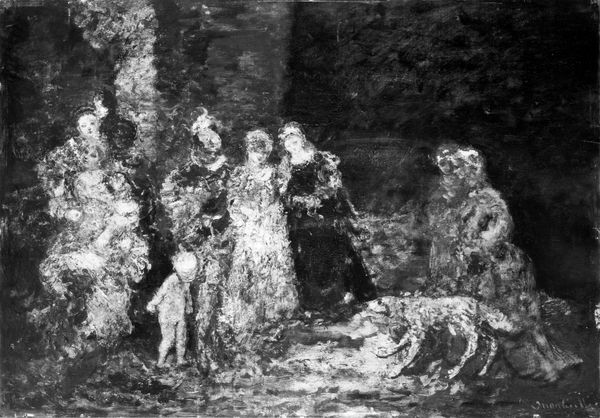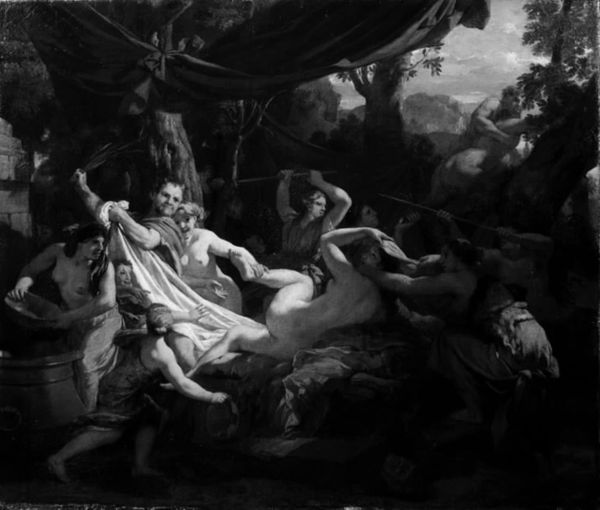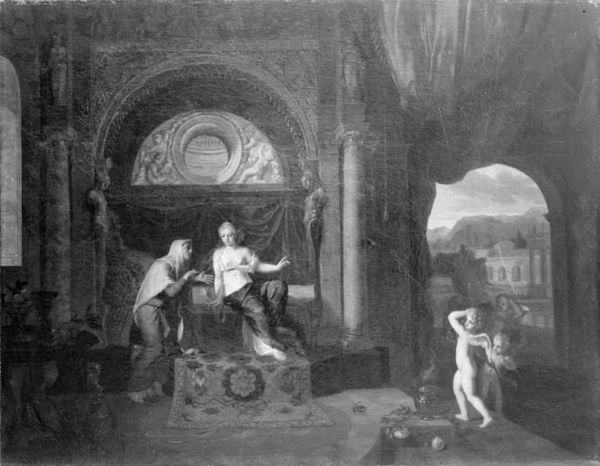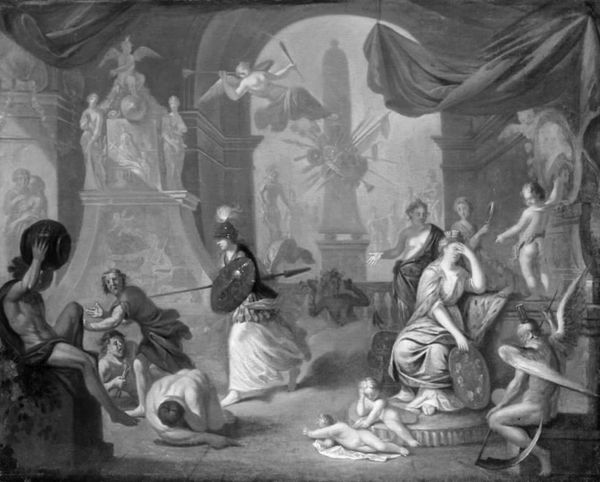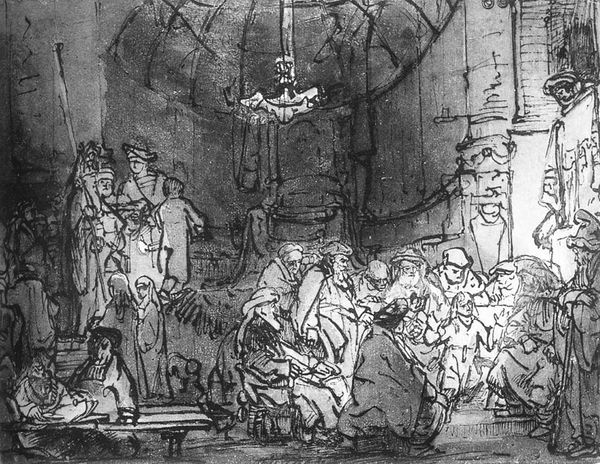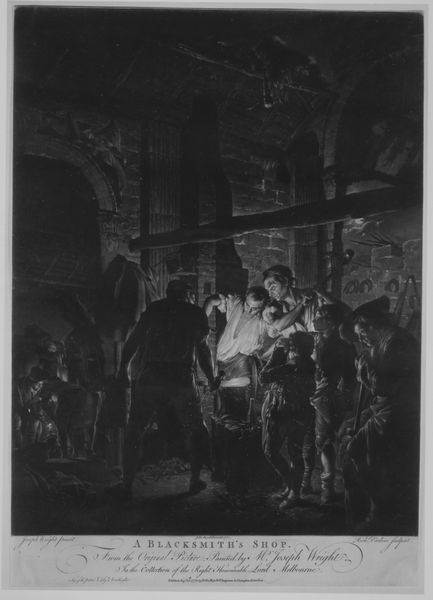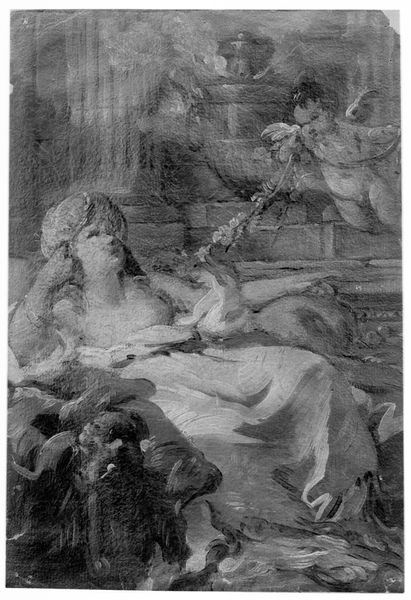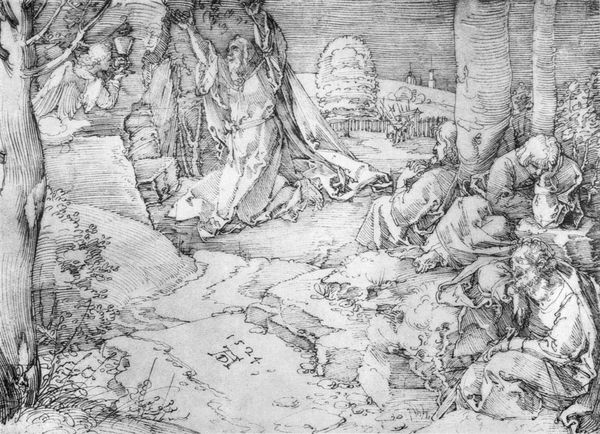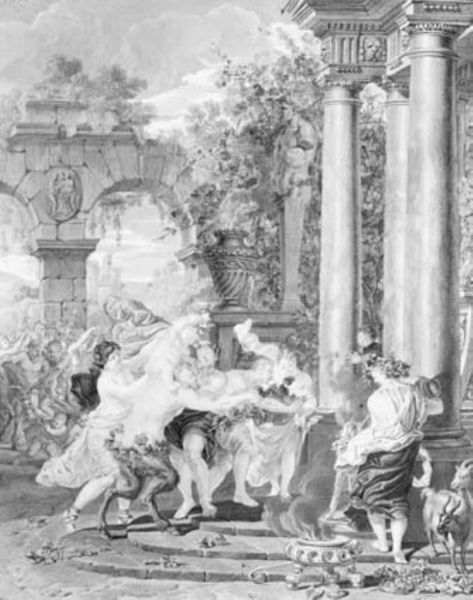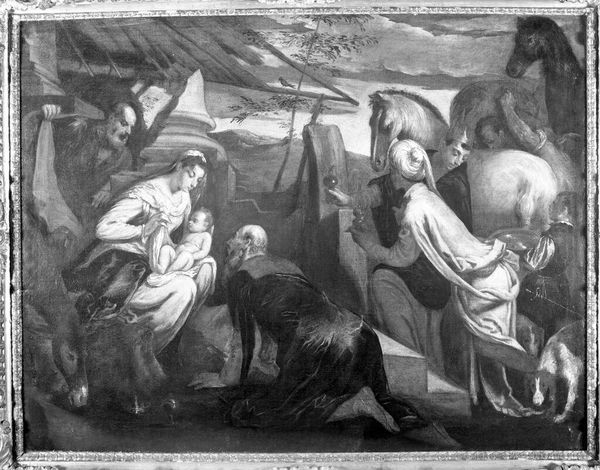
Thusnelda at the Triumphal Entry of Germanicus into Rome 1870 - 1880
0:00
0:00
painting, oil-paint
#
portrait
#
narrative-art
#
painting
#
oil-paint
#
classicism
#
group-portraits
#
black and white
#
monochrome photography
#
history-painting
#
monochrome
#
monochrome
Dimensions: 53 x 77 1/4 in. (134.6 x 196.2 cm)
Copyright: Public Domain
Karl Theodor von Piloty made this grand painting on canvas to depict a historical scene from ancient Rome. The sheer scale and detail involved an immense amount of labor, reflecting the opulence and power the work seeks to portray. Piloty worked with oil paint to build up the scene layer by layer, a process that demands not just artistic skill but also physical stamina. Consider the textures he's conjured – from the soft fabrics of the Roman garments to the rough edges of the barbarian's clothing. These material contrasts speak volumes about the hierarchies Piloty aimed to represent. The painting's subject matter isn't just about a triumphal entry; it’s about conquest and subjugation. It makes you think about the labor that underpins such displays of power – the soldiers, the artisans who built the arches, the slaves who maintained the empire. All of this manual labor is a stark contrast to the refined artistry on display here. By focusing on the materials, the making, and the context, we can appreciate how Piloty's painting operates not only as a work of art but also as a historical document that reminds us of the social and political structures of the time.
Comments
No comments
Be the first to comment and join the conversation on the ultimate creative platform.
